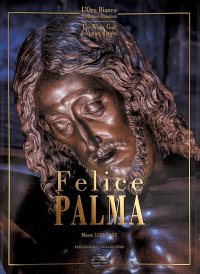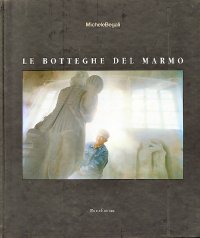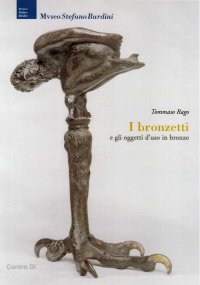Felice Palma. Massa 1583-1625. Collezione / Collection.
Texts by Andrei Cristina, Ciarlo Nicola, Federici Fabrizio, Claudio Casini and Sara Ragni.
Italian and English Text.
Pontedera, 2024; bound in a case, pp. 289, b/w and col. ill., b/w and col. plates, cm 24,5x34.
(L'Oro Bianco. Straordinari Dimenticati. The White Gold Forgotten Masters).
cover price: € 160.00
|
Books included in the offer:
Felice Palma. Massa 1583-1625. Collezione / Collection.
Texts by Andrei Cristina, Ciarlo Nicola, Federici Fabrizio, Claudio Casini and Sara Ragni.
Italian and English Text.
Pontedera, 2024; bound in a case, pp. 289, b/w and col. ill., b/w and col. plates, cm 24,5x34.
(L'Oro Bianco. Straordinari Dimenticati. The White Gold Forgotten Masters).
FREE (cover price: € 160.00)
Le botteghe del marmo
Italian and English Text.
Ospedaletto, 1992; bound, pp. 153, 10 b/w ill., 60 col. ill., cm 24x29.
(Immagine).
FREE (cover price: € 34.49)
Museo Stefano Bardini. I Bronzetti e gli Oggetti d'Uso in Bronzo
Edited by Nesi A.
Firenze, 2009; paperback, pp. 191, 102 b/w ill., 7 col. ill., cm 17x24,5.
(Museo Stefano Bardini).
FREE (cover price: € 30.00)
Bronzetti e Rilievi dal XV al XVIII Secolo
Bologna, 2015; 2 vols., bound in a case, pp. 729, ill., col. plates, cm 21,5x30,5.
FREE (cover price: € 90.00)
Crossing borders: variations on a theme in canadian studies
Edizioni ETS
Edited by Palusci O. and Rizzardi B.
English Text.
Pisa, 2014; paperback, pp. 148, ill., cm 17x24.
(Diagosfera. 4).
series: Diagosfera
ISBN: 88-467-3878-0 - EAN13: 9788846738783
Period: 1800-1960 (XIX-XX) Modern Period
Places: Europe,Out of Europe
Languages: 
Weight: 0.35 kg
This sense of permeability, of the precariousness of borders, of adaptation to new circumstances creates the peculiarity of a literature where the past is still here, lurking under the surface of the cultural soil, while the writer has to cope with the confusing explosion of new events. The lack of a 'classic' tradition, unless it derives from an experience lived in another historical time, in another country, questions the roots of national identity, and makes the writers explored in the following pages of this collection trespassers of narrative borders in a world linguistically and generically impervious and garbled.












